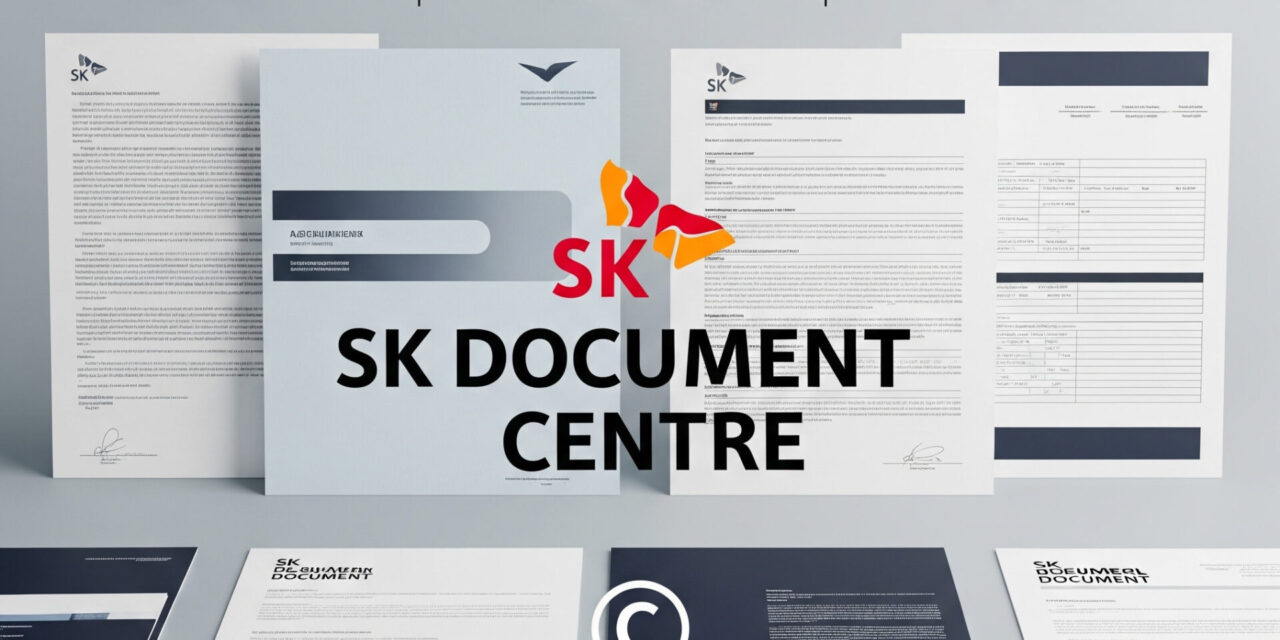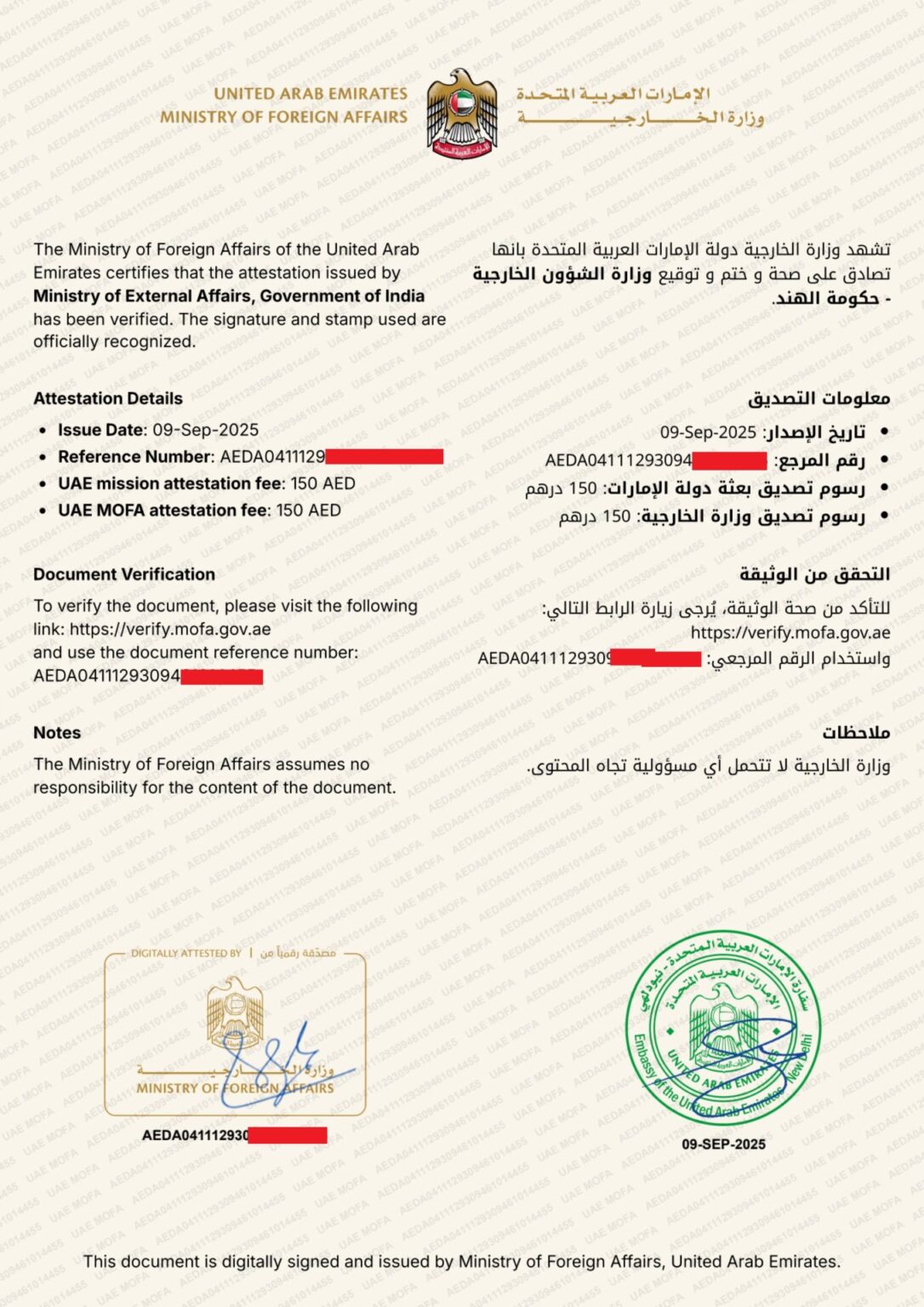Our Services
Get Started Today
For quick assistance, contact us now
Get In Touch

What is Embassy Attestation?
Embassy attestation is considered one of the most crucial procedures for validating personal, educational, and commercial documents. Through this process, a certificate or document is verified by the concerned embassy of a foreign country. Once the attestation is completed, the document is officially accepted for use abroad. This procedure is often regarded as a mandatory step when an individual wishes to study, work, migrate, or conduct business in another country.
Under this system, documents such as birth certificates, marriage certificates, degree certificates, commercial agreements, and other legal papers are first verified by local authorities. After verification by state or central government departments, they are finally attested by the embassy of the destination country. Through this layered procedure, authenticity is confirmed, and the risk of fraud is reduced. The attested document is then recognized as valid and genuine by the concerned foreign authorities.
Generally, three kinds of certificates, the authorities attest – Educational Document, Personal Document and Commercial Document.
Why Embassy Attestation Is Required?
Embassy attestation is required so that trust and reliability can be built between the document holder and the foreign government. Without embassy attestation, documents are often not accepted internationally. By ensuring that certificates are genuine, embassy attestation helps in preventing misuse or misrepresentation.
For students, embassy attestation is required so that educational qualifications can be recognized by universities abroad. Without this step, admission and visa processes may not be completed. For employees, attestation is demanded so that job offers, work permits, and professional licenses can be granted in foreign countries. Similarly, businessmen are also asked to provide attested commercial documents so that trade agreements, company registrations, or investment procedures can be carried out legally.
It is also observed that attested documents are accepted in immigration processes. For example, while applying for permanent residency or dependent visas, birth or marriage certificates are required in attested form. By following this procedure, the foreign authority ensures that the information provided is genuine and legally correct.
Thus, embassy attestation is considered an essential legal procedure that cannot be avoided by those who plan to move abroad. By completing it, documents gain international credibility, and smoother processing of visas, admissions, or professional requirements is achieved.
By embassy attestation, the authenticity of the document is not only confirmed but also recognized by the law of the foreign nation. Without attestation, documents are often rejected, which leads to delays in visa processing, job approvals, or admission procedures. Therefore, this process is treated as an essential legal formality for international travel and settlement.
In conclusion, embassy attestation can be described as the official seal of approval that provides credibility to documents issued in one country for their use in another. Through this verification, legal acceptance is ensured, fraud is prevented, and international transactions, studies, and employment opportunities are smoothly facilitated.
Embassy Attestation Requirement
Attestation is a prerequisite for completing prior to the shift to a foreign country for the following purposes.
- Permanent residency visa
- Work visa
- Study visa
- Visit or tourist visa
- Business visa
- Family or relative category visa
- Partner or spouse category visa
Read More: Visa Consultant Service to Obtain Visa
Prior to allowing you to use your legal documents with your visa application, the visa consultant requests you to attest to them from the embassy of the applicant’s destination country.
Attestation demonstrates that the certificate an applicant will use in the concerned country has crossed the legal verification procedure held by the home country’s government departments and embassy.
The service of attestation is the task accomplished by the outsourcing company SK Document Centre of the Ministry of External Affairs of India.

- What is Embassy Attestation Process?
Our Embassy Attestation process is carefully structured to ensure security, accuracy, and complete legal compliance at every stage.
- Notary Attestation
- Sub divisional Magistrate (SDM) Attestation
- State Level Attestation (Home Department / HRD / Chamber of Commerce) if Applicable
- MEA Attestation / MEA Apostille Attestation (Central-level verification by the Ministry of External Affairs)
- Embassy Attestation / MOFA Attestation (if required by the destination country)
Embassy Attestation Procedure
The process of all three types of documents includes three steps, and they are;
Educational Documents Embassy Attestation
- Step 1 - HRD Attestation
All kinds of educational documents, like degrees, diplomas, mark sheets, etc., are verified and attested by the State Human Resource Department (HRD).
Read More: HRD Attestation
- Step 2 - MEA Attestation
All educational documents issued by the Indian-based universities, colleges, schools, and institutes get final attestation on the national level by the Ministry of External Affairs (MEA), Government of India.
Read More: MEA Attestation
- Step 3 - Embassy Attestation
The final documents attestation is the embassy attestation placed by the embassy of the country where the applicant is going to use his documents.
Personal Documents Embassy Attestation
- Step 1 - State Home Attestation
All non-educational/personal documents, like marriage, death, birth, divorce, etc., are verified and attested by the State Home Department
Read More: HRD Attestation /State Home Attestation
- Step 2 - MEA Attestation
All educational documents issued by the Indian-based universities, colleges, schools, and institutes get final attestation on the national level by the Ministry of External Affairs (MEA), Government of India.
Read More: MEA Attestation
- Step 3 - Embassy Attestation
The final documents attestation is the embassy attestation placed by the embassy of the country where the applicant is going to use his documents.
Commercial Documents Embassy Attestation
- Step 1 - Chamber of Commerce Attestation
All commercial documents that an applicant needs to do business, international trade, or any other business-related purposes are legally verified and attested by The Chamber of Commerce.
Read More: Chamber of Commerce Attestation
- Step 2 - MEA Attestation
All educational documents issued by the Indian-based universities, colleges, schools, and institutes get final attestation on the national level by the Ministry of External Affairs (MEA), Government of India.
Read More: MEA Attestation
- Step 3 - Embassy Attestation
The final documents attestation is the embassy attestation placed by the embassy of the country where the applicant is going to use his documents.
Essential Papers Needed for Embassy Legalization
Submit the following documents to the SEPL team to process the embassy attestation for an applicant.
- Original Certificate
- Passport Copy
- Authorization Letter (If Applicable)
How Long Does Embassy Attestation Take?
Timeframe
3-5 working days (Varies by country and document type)
Cost
Embassy attestation fees differ by country and document Contact us for a custom quote
Service
We provide doorstep document pickup and delivery, real-time updates, and full support.
- Documents We Help Attestation
Educational Documents
- Degree Certificate
- Senior secondary certificate
- High school certificate
- Mark Sheets
- School Leaving Certificate
- Post-graduation
- Engineering
- Transcripts Certificate
- PhD attestation
- MBBS/MD
Personal Documents
- Birth certificate
- Police Clearance Certificate
- Medical certificate attestation
- Marriage certificate attestation
- Aadhar Copy
- Passport copy
- Death certificate
- Divorce certificate
- Becholor hood certificate
- Single Status Certificate
- Invitation Letter
- Affidavit
Commercial Documents
- GST Certificate
- Company Pan Card
- Power of attorney
- Memorandum of association
- Export Invoice
- Import Export certificate
- Incorporation certificate
- Letter of Gurantee
- END-User Certificate
- Company Profile
1. What is Embassy Attestation?
Embassy attestation is the process by which an official embassy or consulate verifies the authenticity of documents, including educational certificates, marriage certificates, and business documents. The attestation ensures that the documents are recognized and accepted in the foreign country where the individual intends to use them.
2. Why is Embassy Attestation Required?
Embassy attestation is generally required when:
Applying for a visa (work, study, or immigration)
Legalizing educational or professional documents for use abroad
Confirming the authenticity of a marriage or birth certificate
Submitting documents for foreign jobs or setting up business deals
Immigration or embassy requirements for other legal formalities
It serves as a safeguard to ensure that all documents comply with the legal standards of the destination country.
3. Which Embassies in India Provide Attestation Services?
Embassy attestation services are available for a variety of countries through their respective embassies or consulates in India. Some of the embassies providing attestation include:
Embassy of the United States of America (USA)
Embassy of the United Kingdom (UK)
Embassy of Canada (Canada)
Embassy of the United Arab Emirates (UAE)
Embassy of Australia (Australia)
Embassy of Saudi Arabia (Saudi Arabia)
Embassy of Qatar (Qatar)
Embassy of Oman (Oman)
Embassy of Kuwait (Kuwait)
Embassy of Bahrain (Bahrain)
Embassy of Singapore (Singapore)
Embassy of New Zealand (New Zealand)
Embassy of Germany (Germany)
Embassy of France (France)
Each embassy has its own set of rules, requirements, and procedures for attestation.
4. What Documents Need Embassy Attestation?
Typically, the following documents require embassy attestation:
Educational Documents: Degree certificates, diplomas, mark sheets, transcripts, etc.
Non-Educational Documents: Birth certificates, marriage certificates, death certificates, etc.
Commercial Documents: Power of attorney, business contracts, partnership agreements, etc.
Other Documents: Police clearance certificates, medical certificates, etc.
The type of document determines the specific process for attestation.
.
5. How Does the Embassy Attestation Process Work?
The embassy attestation process typically involves the following steps:
Verification by Local Authorities: Before embassy attestation, the documents are usually verified by local authorities such as the Home Department, Ministry of External Affairs (MEA), or the State Government, depending on the document type.
Submission to the Embassy or Consulate: After verification, the documents are submitted to the respective embassy or consulate of the country for final attestation.
Embassy Attestation: The embassy authenticates the document and places an official stamp or seal, confirming the document’s authenticity and legality for use in the respective country.
6. What is the Cost of Embassy Attestation?
The cost for embassy attestation varies depending on:
The type of document being attested
The embassy or consulate where the attestation is being done
The country involved
The urgency of the attestation (normal vs. expedited service)
Generally, the cost can range from INR 2000 to INR 60,000 per document. Additional fees may apply for expedited services or document courier charges.
7. How Long Does Embassy Attestation Take?
The time for embassy attestation depends on:
The embassy’s processing time
The type of document being attested
The volume of requests being processed
Typically, embassy attestation can take anywhere from 3 to 15 working days. Expedited services are often available at an additional cost for faster processing.
8. Do I Need to Visit the Embassy in Person?
In most cases, you do not need to visit the embassy in person. The attestation process can be handled through professional attestation services or agencies that coordinate the submission and collection of documents. However, for some documents, you might be required to appear in person.
9. What Happens if My Document is Rejected?
If a document is rejected during the attestation process, it could be due to:
Improper verification from local authorities
Missing information or errors in the document
Non-compliance with embassy regulations
In such cases, you may need to rectify the document and resubmit it for further processing.
10. Can Documents Be Attested by Multiple Embassies?
Yes, certain documents may require attestation by multiple embassies. For instance, a document may need to be attested by the Indian Ministry of External Affairs (MEA) before submission to a foreign embassy for further authentication. Additionally, some countries require the attestation to go through an intermediary embassy before final approval.
11. How Do I Find Out the Specific Attestation Requirements of Each Embassy?
You can contact the respective embassy or consulate directly or visit their official website to find detailed information about the document attestation process. It is advisable to check specific embassy requirements as these vary from country to country.
12. Can Documents Be Attested for Multiple Countries?
Yes, in most cases, documents can be attested for use in multiple countries. However, each country may have its own requirements for document legalization. It’s recommended to confirm the specific attestation requirements for each country beforehand.
